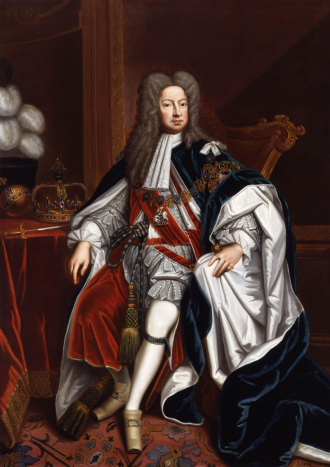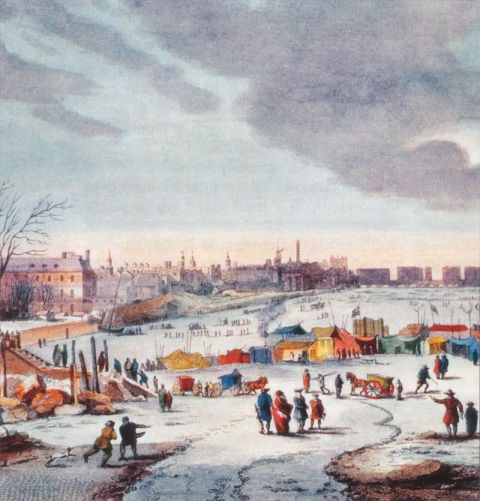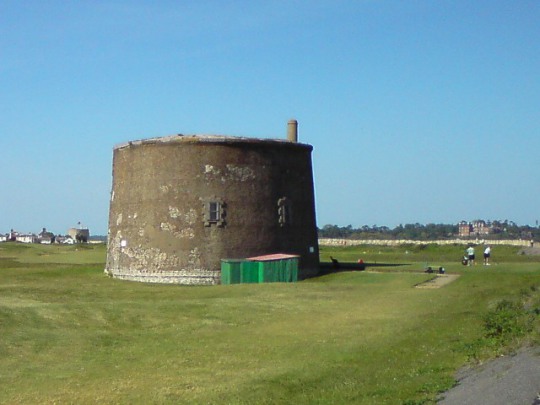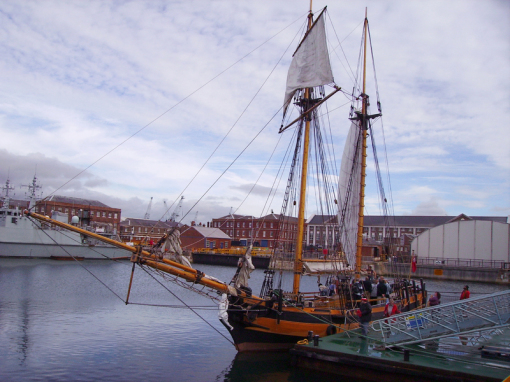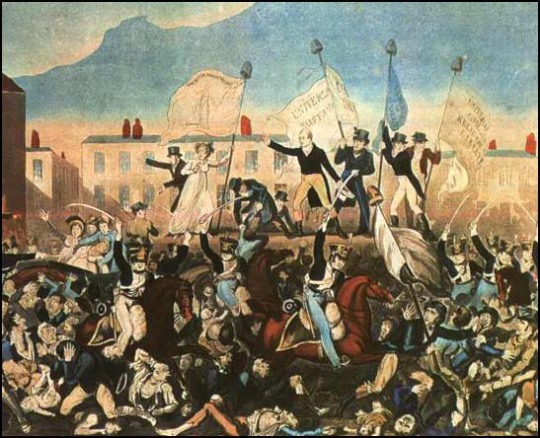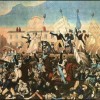
Reasons for the Union
Reasons for the Union
How external circumstances affected the devlopment of Freemasonry – Glyn B Jarrett MA
Published histories of Freemasonry tend to concentrate on internal matters: the growth, organisation and administration of the fraternity as well as changes to what we might call the ‘inner workings’, that is to say, the ritual. However, our evolution has often been crucially influenced by the politics and the social conditions of the time. Differences of social class, ethnicity, politics and religion determined the early structure of Masonic organisation, making fundamental contributions to the difficulties before the Union. The Union of the two Grand Lodges in 1813 was forced by gargantuan political crises. In 1799, Freemasonry had come within a vote in Parliament of being deemed a criminal activity.
The Hanoverians
Let me set the scene, starting in 1717 when our first Grand Lodge was formed.
King George I, studio of Sir Godfrey Kneller, Bt, oil on canvas, (1714), NPG 544 © National Portrait Gallery, London (donation made)
George I had just become King in circumstances so amazing that they almost resulted in a second civil war. The previous sovereigns, William and Mary, and then Queen Anne, had no surviving children. Anne, as Princess Anne, had at least 14 pregnancies, but when the last of her few surviving children, Prince William, died aged 11 in 1700, it was far from clear who was Heir Presumptive. The Act of Settlement (1701), prompted by this succession problem, decreed that anyone who was a Roman Catholic or who married a Roman Catholic was disqualified from the throne. The first Protestant successor to Anne was Sophia, Electress of Hanover — 52nd in line to the throne! She was declared Heir Presumptive, and became Heir Apparent when Anne became Queen. Since she died a couple of months before Queen Anne, the succession fell upon her son George.
George spoke German and French but little English. Nevertheless, he became King of England, Scotland and Ireland and he occasionally came here. (note 1) It was not a popular Accession and the Jacobite rebellions intensified, their aim being to restore the deposed Catholic James II and his descendants (note 2) to the throne (Jacobus being the Latin form of
James). The Spanish invasion of 1719 culminating in the battle of Glen Shiel, the great battles of Prestonpans (1745), Culloden (1746), the Pretenders, James Stuart (son of James II) and Bonnie Prince Charlie (Charles Edward Stuart) have become the stuff of Scottish legend, but the troubles were not just in Scotland. Charlie’s army got as far south as Derby in 1745 before being held and forced to retreat. A year before that, a force of 15,000 Frenchmen embarked to invade England and attack London directly, planning to land at Maldon in Essex, so avoiding the British Navy in the Thames and the Solent. As at other times, the weather prevented the invasion. The French fleet was scattered in the Channel. The Jacobite rebellions were crushed. Retribution was terrible.
None of the Hanoverian Kings were much revered. George I and George II were German Germans. George III was born in England. He reigned for sixty years, had fifteen children, and went mad — poisoned, it now seems, by arsenic used as a medication. In its obituary of George Augustus Frederick, George IV, not only a mason but Grand Master, the Times said, “There never was an individual less regretted by his fellow-creatures.”
Most of the immediate descendants of George I became Masons, albeit almost all initiated on the Continent. Among them were Grand Masters of the new Premier Grand Lodge. After Desaguliers, the third Grand Master, many of the Grand Masters of the Premier Grand Lodge were Princes and all were noblemen with the exception of George Payne’s brief second stint in 1720. Desaguliers himself, founder of the Premier Grand Lodge, Oxford don, eminent scientist and Fellow of the Royal Society, brought many of the leading academics of the day into the order. This Freemasonry was the realm of the upper classes and the nobility — but there was another England.
That other England
It is difficult for us to imagine the appalling conditions under which ordinary people lived in the 18th and early 19th century: the squalor, oppression, and subjugation. The working week for a labourer was 70 hours or more. This was long before Trades Union and the rights of workers, before the right to vote, before schools, and, very significantly, before medicine. Life expectancy was about forty, seven years less than life expectancy in Sierra Leone today. In 1822, half the population on Britain was under twenty.
Thames Frost Fair - Thomas Wyke
The 18th century was in the middle of the Little Ice Age (1550-1850) when, for example, the Thames often froze over. Around the middle of the century, all Europe experienced a particularly cold period when normal civilised life became almost impossible, and many starved or froze to death.
Irish immigration
In the 1700s there were many Irish immigrants in England, especially in London. Ireland experienced a century of famines before the Great Famine of 1845, and was desperately poor. An especially cold winter followed a particularly bad harvest mean that 1741 became known in folk memory as the year of the slaughter (bliain an áir.) Mortality ranged by locality from 13% to 40%. Between 300,000 to 400,000 Irish people died, proportionately worse than in the great famine (an gorta mór) of 1845-52. (note 3) Irish immigrants were coming to England for food. The streets of London may have been said to be paved with gold but it was certainly not gold that covered the surface and filled every rut of the stinking streets of London. Such men would naturally congregate for company in local taverns and some of them were Masons, initiated in Ireland. Lodges were formed which practised Masonry in ways familiar to them, and they would not have been too concerned about the dictates of the noblemen of the Premier Grand Lodge. Others joined them, men who were also somewhat less than Royal Princes. The tenets of Freemasonry give ample reason for men to gather together in whatever stratum of society they happen to be: Princes, noblemen, academics, politicians, businessmen, servicemen, artisans. That doesn’t say that men from different strata will necessarily mix — and they didn’t. In 1735, there was a semi-official attempt by some Irishmen to attend Grand Lodge, but they were snubbed and excluded. As late as 1777, the Premier Grand Lodge decreed that:
“… those persons calling themselves ‘Antient’ Masons and now assembling in England and elsewhere under the patronage of the Duke of Atholl are not to be considered Masons …” (note 4)
There could hardly be a more definitive indication of the attitude of the rulers of the Premier Grand Lodge; to them the fundamental dichotomy was irreconcilable. So it wasn’t that the Antients broke away from the Premier Grand Lodge, the Moderns, over differences of ritual; (note 5) the us-and-them dichotomy was there all along. These Irishmen (and their Scottish friends) were Brethren of independent, autonomous units. They didn’t actually form a Grand Lodge and become the Antients until 1751. Then things became really bitter and hostile The oldest lodge in Essex, the Angel, was a Moderns Lodge, meeting in Colchester. When some of its Brethren visited an Antients Lodge, Angel excluded them, their own Brethren. It was not brotherly love that eventually brought about the reconciliation but the French Revolution and Napoleon Bonaparte
The Napoleonic Wars
Martello Tower near Felixstowe Ferry
With the Martello Tower at Felixstowe Ferry and Bawdsey Manor in the background.
Copyright Tim Marchant, licensed for re-use under Creative Commons licence.
At the end of the 18th century, all Europe was ravaged by war, – what must have seemed like perpetual war. Napoleon dominated the Continent until his disastrous retreat from Moscow in 1812. British forces were involved throughout, in various coalitions, and almost simultaneously we had troops in America, India, South Africa, and Ireland. With no police force, the Army was also needed at home for controlling protests and demonstrations.
In 1796, then a General in the French Army, Napoleon had established an enormous garrison at Boulogne with a fleet of nvasion barges. Elaborate defences, including the Martello Towers, were constructed all round England’s south coast in anticipation of invasion. Citizens were organised into ‘home guard’ units. This was 1796, not 1940! Essex, for example, became one large garrison, much as it was one large fighter airfield in WWII. The threat of Napoleon’s invasion persisted until Nelson established control of the Channel, but the war itself went on and on. Compare this with the control of the air in WWII which prevented the invasion, but certainly didn’t end the war. Bonaparte had seized power in France in November 1799, declaring himself Emperor. Waterloo; the final battle with him didn’t come until 1815.
Britain had the largest, most powerful Navy in the world. The Government required it to be stronger than the combined Navies of any two other countries and it was powerful enough to blockade America, stifling trade with Europe. It was ruinously expensive, in wood, supplies and men. Manning the ships was what limited the size of the Navy even if the pressgangs were not too fussy about interviewing the men they recruited. Life at sea was hard, cheap, and short. Advances in marine technology (such as copper-bottoming) meant that ships could remain longer at sea. That just gave the food longer to rot. Sailors died of scurvy, among many other ills. The Spithead mutiny in the Solent and the Nore mutiny off Southend in 1797 were to demand half-decent living conditions on board. Nevertheless, command at sea was brilliant: Cape St Vincent in 1797 (the same year as the mutinies), the Nile 1798, Copenhagen 1801 and Trafalgar 1805.
Let me use the battle of Trafalgar as an illustration of the difficulty of travel in those days, of even getting a message across the country. The last stage of the race, to convey to the King the urgent news of the victory at Trafalgar, was by post-chaise from Falmouth to London. John Richards Lapenotière, captain of HMS Pickle, a small but fast six gun topsail schooner, gambled that it would be quicker to go overland from Falmouth than to beat up the Channel and round into the Thames. With 21 changes of horses en route, it took him 37 hours. A standard journey from London to Manchester took four days, to Edinburgh twelve.
Pickle replica in Portsmouth, Centpacrr, Wkimedia Commons
The country simply could not afford the war. Income tax was introduced. Inflation was crippling society – 36% in 1800. The poor couldn’t afford bread. People were suffering, not only from the concomitant privations of war, but also from society’s inability to cope with the Industrial Revolution, and the all too rapid changes it brought. That revolution was driven by steam. Steam required coal. Machinery required steel. Suddenly, and almost overnight, society changed from being predominantly agricultural and rural to being industrial and urban.
Living and working conditions
Living conditions were appalling. They wouldn’t have been luxurious when people lived in the country, but at least there they had space. Factory owners, who were beginning to make money, (Where there’s muck, there’s brass) built living accommodation for their workers in the new towns; typically back-to-back terraces, with no drains, no sanitation, and no running water — and all the killer diseases were rampant. Sick people died; we had no realistic medicine then. (note 6) Children of ordinary people didn’t go to school. Few of the population could read or write. There was an Education Act in 1870, but it was not until 1900 that most ten year olds had been to school; most then left for work.
Working conditions were appalling. The records of one coal mine show that, on average, one man died every day and a child was killed every week. Children of five were employed in cotton factories, working all the hours they were not asleep, though they didn’t all live to complain. Owners took on the many orphans as unpaid apprentices, arguing that that was kinder than leaving them out on the streets. Lest you think I exaggerate, consider the following Acts of Parliament that were still to come.
1825: Cotton Mills Regulation Act limited the working day for children to only twelve hours.
1833: The Factory Act: children below the age of nine could no longer be employed.
1842: The Mines Act. Nine year old boys were banned from work underground – as were all women. The Act was largely ignored by owners and miners.
1847: A shift for children could not be more than ten hours. The owners eagerly supported this. It meant that two shifts a day could be worked!
Later in the 1800s, unemployment became serious as mechanisation reduced the need for human intervention. The term unemployment was not used by the rulers and economics commentators of the time; the word used was overpopulation. Luddites attacked machinery which they realised would destroy cottage industries. Dozens were hanged. Life was indeed cheap. Executions at Tyburn were a public spectacle. In 1800, over 200 people were hanged, many for relatively minor offences. The Grand Chaplain, the Rev Dr Dodd, was hanged for forgery. Over the next fifty years, the death penalty tended to be commuted to transportation and over 5,000 were transported in 1830 alone. The inevitable protests in many towns were put down with brutal violence.
Peterloo Massacre, by Richard Carlile (1790-1843), an activist for freedom of the press and
publisher of a 19th century exposure, effectively the first modern ritual book. Manchester Library Services, Wikimedia Commons.
Politics
One political grievance that emerged was the lack of representation in Parliament. Large industrial towns like Manchester, Birmingham, Sheffield, had no MP. Only about half a million men (no women) in the country had the vote; mostly aristocracy and land-owners. In 1819, came the Peterloo Massacre in Manchester. It was a fine day and a crowd assembled, many families out for a day in the park, although the call had been to hear the case for political representation. The local magistrates panicked; crowds were illegal. A local untrained militia, not an army regiment, was ordered to disperse the crowd. They rode in with sabres drawn. Many died and many more were injured. The Government sided with the magistrates. No enquiry was ever allowed. Such suppression was to continue for many years.
At this time, all Europe was writhing under the horrific effects of the French Revolution, which started with the storming of the Bastille in 1789. On the Continent, traditional government had collapsed. Thomas Paine, whose work could be said to have inspired the American revolution, published the Rights of Man in 1791. He wrote:
As revolutions have begun … it is natural to expect that other revolutions will follow. The amazing and still increasing expenses with which old governments are conducted, the numerous wars they engage in or provoke, the embarrassments they throw in the way of universal civilisation and commerce, and the oppression and usurpation acted at home, have wearied out the patience, and exhausted the property of the world … If systems of government can be introduced less expensive and more productive of general happiness than those which have existed, all
attempts to oppose their progress will in the end be fruitless. Reason, like time, will make its own way, and prejudice will fall in a combat with interest. If universal peace, civilisation, and commerce are ever to be the happy lot of man, it cannot be accomplished but by a revolution in the system of governments.
In an attempt to prevent the spread of revolution from France to England, a threat as great as the threat of Hitler’s invasion of England in 1940, the Government under William Pitt introduced a succession of repressive measures. It wasn’t martial law yet, but Habeas Corpus was suspended. Suspected criminals didn’t have to be tried; they were merely disposed of. Public meetings were banned, press censorship introduced, and unauthorised printing prohibited. There certainly was an element of paranoia. The Home Office investigated Coleridge and Wordsworth (note 7) as suspected French spies. But there was cause for concern. The Society of United Irishmen started as a republican movement but then actively sought rebellion. Scottish and English groups with distinctly republican aims, were also operating.
In 1798, Ireland exploded. The rebellion was not well organised and was eventually crushed. Tens of thousands of Irish people were killed. Martial law was declared in March of that year. The Irish Parliament was immediately abolished. Ireland would be ruled from London. The Church of Ireland was abolished. The Irish Church would be Anglican, though most of the population were Catholics. It is not difficult to imagine how Irishmen living in England felt about this and how it affected the already antagonistic relationship between the artisan Brethren of the Antients Lodges and the Noblemen of the Premier Grand Lodge.
Repression
The next year, sensing possible appalling trouble to follow at home, William Pitt’s Government panicked and snapped. Among many further repressive measures, the Unlawful Societies Act was introduced in 1799, aimed primarily, of course, at the Society of United Irishmen. It passed its First and Second Readings. Now any Society that met behind closed doors, or required some sort of declaration of allegiance, was about to become illegal. Under this blanket ban, Freemasonry was about to become a criminal activity. Infringement of the law would have incurred dire consequences.
The Duke of Atholl, Grand Master of the Antients, and Major-General, the Earl of Moira, Pro Grand Master of the Moderns, with the Royal Princes backstage no doubt, petitioned the Prime Minister for the exemption of Freemasonry. Somehow, he was persuaded, (note 8) and an amendment was put for a third reading. There followed fierce debate in both Houses; non-masonic MPs and Lords could see no possible reason for exempting Freemasonry, which obviously offered a superb cloak for sedition and subversion even if the Royal Family were running part of the show. Inexplicably, the amendment scraped through. The anti-masonic Parliament would never have passed the amendment unless under enormous pressure, from somewhere or someone, which could not be recorded. Freemasonry would be exempt – with conditions.
There were to be no new lodges. (note 9) Freemasonry would require stringent rules for self-government, affiliation of all units to one central management, and registration of membership with local magistrates. So, suddenly in 1800, the two Grand Lodges were forced to create some sort of central administration. The 1813 union was the result of a political act.
The Royal Brothers, the Dukes of Sussex and Kent, sons of George III, became temporary Grand Masters of the two houses, pending the amalgamation. Big Brother George, who had been Grand Master, was now Prince Regent, his father still being with us in body but not in mind. We can suppose that the order from Kensington Palace was, “Sort it. Now!”
The decade that followed up to the Union is, of course, well documented in Masonic history. The internecine differences, the details, were far from trivial. In fact, many would not be settled in sub-committees until years after the formal agreement in principle. What we don’t read about is that us-and-them dichotomy. Such dichotomies abound; perhaps they are human nature. To be trivial: Rangers and Celtic, Liverpool and Everton, Dundee and Dundee United … to be serious: Republican and Loyalist, Catholic and Protestant, Shia and Sunni, Moderns and Antients. Bernard Jones wrote:
(note 10)
Human nature being as it is, it was not until the generation of that day had been succeeded by its sons that the last bitterness of the old quarrel disappeared.
I would make that at least grandsons.
One of those details that had to be agreed was the status of the Royal Arch. They were arguing about that up to the very last minute before the big unification meeting. The words of the Articles of Union that mention the Royal Arch – there are only nine of them in Article II – were altered even after they had been agreed by both houses. The nonsensical definition of Pure Antient Masonry printed there (note 11) shows that they hadn’t time to argue any longer but that they had to feign agreement forthwith. They were under gargantuan political pressure. It would be 22 years before discussion about the workings of the Royal Arch was resumed. Most Masonic analyses of the reasons for the Union don’t mention social discrimination or the Unlawful Societies Act — but the history does matter.
Notes
1. The Act of Settlement included a clause that the King had to ask the permission of Parliament before leaving the country. This clause was repealed in 1716. George was also effectively King of Germany and spent about one-fifth of his time in this role.
2. But for that Act of Settlement, more than 50 Catholics had a better claim to the throne than did George I. 3. Arctic Ireland: the extraordinary Story of the Great Frost and Forgotten Famine of 1740/41. David Dickson, The White Row Press, Belfast, 1997.
4. When the Antients formed a Grand Lodge, aristocracy did become involved, at the top level. For a while, it was referred to as The Lodge of Atholl, after the 3rd and 4th Dukes of Atholl who were Grand Masters.
5. The presence of separate Grand Lodges has often been thought to have been a consequence of a disagreement about arcane words in the ritual. Dr David West has recently shown that this is unlikely to be true.The divisions within Freemasonry were far more the result of social conditions.
6. The great medical advances took place in the middle of the 19th century: the germ theory of disease, John Snow 1854, pasteur 1864; antiseptic surgery techniques, Joseph Lister 1867; the importance of sanitation Thomas Southwood Smith, 1854.
7. Wordsworth was much heartened by the initial stages of the revolution: for example The Prelude, Book nine:
Of a Republic, where all stood thus far Upon equal ground; that we were brothers all In honour, as in one community,
Scholars and gentlemen; where, furthermore, Distinction open lay to all that came, And wealth and titles were in less esteem
Than talents, worth, and prosperous industry, Add unto this, subservience from the first To presences of God’s mysterious power
Made manifest in Nature’s sovereignty, And fellowship with venerable books, To sanction the proud workings of the soul, And mountain liberty.
8. The abilities of Francis Rawdon-Hastings (1754–1826), 1st Marquess of Hastings, 2nd Earl of Moira should not be underestimated. A highly successful military leader and politician in Ireland, England and India, he was a close associate of the Prince Regent.
9. The Antients ducked round this by re-issuing warrants of erased lodges. I don’t know how the eventual United Grand Lodge of England got round this for the next 100 years, but as late as 1939, an anti-masonic council official in Essex wrote to the Government pointing out that a proposed new Lodge in Essex would be illegal. Fortunately, the Government in 1939 had more pressing business to attend to, and the letter was filed. The Law was repealed in 1967.
10. Freemasons’ Guide and Companion, p222, Harrap, 1950.
11. It is declared and pronounced, that pure Ancient Masonry consists of three degrees and no more, viz. those of the Entered Apprentice, Fellow Craft, and the Master Mason, including the Supreme Order of the Holy Royal Arch.

